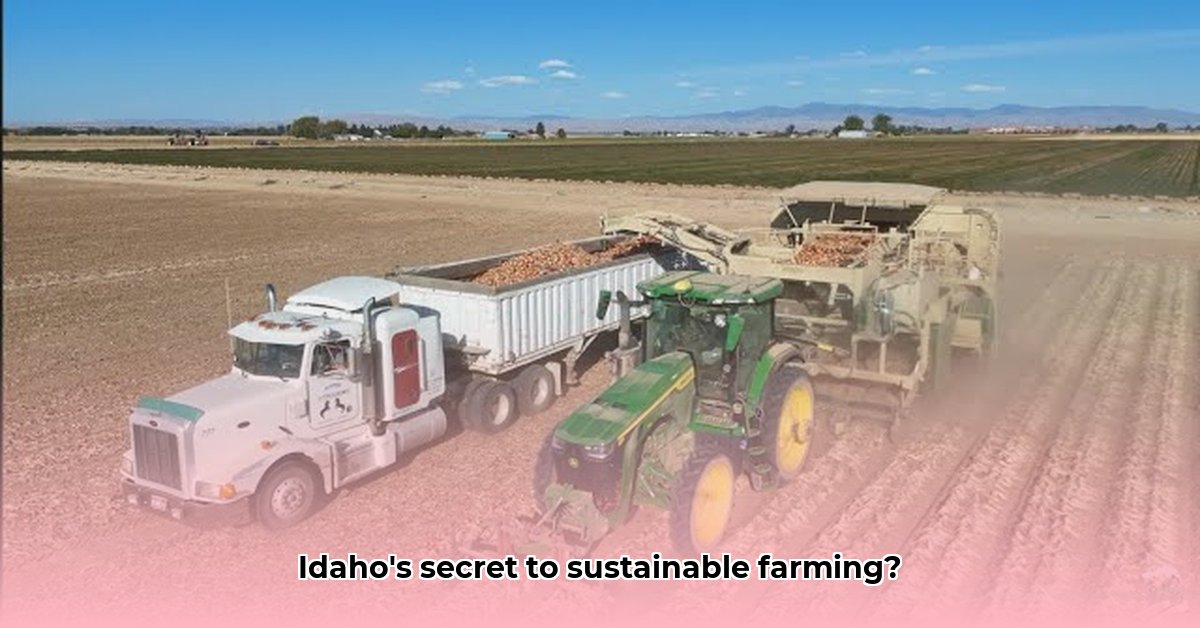
Idaho Tractor Inc. and the Nampa Agricultural Landscape
Idaho Tractor Inc. (ITI) holds a prominent position within Nampa, Idaho's agricultural community. As a primary provider of Kubota equipment—encompassing sales, parts, and comprehensive service—ITI implicitly supports sustainable farming practices through the provision of efficient machinery. This readily available access to reliable, high-performance equipment reduces downtime, minimizing fuel consumption and promoting resource efficiency. But is this implicit support enough? Can ITI actively contribute beyond merely supplying the tools of the trade? For more information on Kubota equipment values, check out Kubota Values.
A Deeper Dive: Exploring ITI's Sustainability Footprint
Initially, one might assume that selling fuel-efficient Kubota equipment automatically equates to promoting sustainable farming. However, a closer examination reveals a notable opportunity for growth. While ITI facilitates sustainable practices through its provision of efficient machinery, a lack of publicly available information regarding explicit sustainability initiatives suggests untapped potential. Do they offer farmer training programs on maximizing fuel efficiency? Are there incentives for purchasing eco-friendly Kubota models? The absence of readily apparent large-scale initiatives presents a clear path for improvement and a chance to become a sustainability leader. How can ITI move beyond implicit support to become a proactive champion of environmental stewardship?
Actionable Recommendations for a More Sustainable Future
To significantly enhance sustainable agricultural practices in the Nampa region, a collaborative effort is paramount. The following recommendations outline actionable steps for key stakeholders:
1. Idaho Tractor Inc. (ITI): Cultivating a Sustainability Culture
- Short-Term (1-2 years): Conduct comprehensive customer surveys to identify specific sustainability needs and desires; develop and implement farmer training programs focusing on maximizing fuel efficiency and minimizing environmental impact from Kubota equipment.
- Long-Term (3-5+ years): Develop a comprehensive sustainability master plan, encompassing waste reduction, energy efficiency improvements, and responsible sourcing; pursue relevant industry certifications to validate their commitment to sustainability.
2. Kubota Corporation: Strengthening the Partnership
- Short-Term (1-2 years): Provide ITI with enhanced resources and training to effectively support farmers' transition toward sustainable practices; collaborate on marketing campaigns highlighting the environmental benefits of Kubota's equipment.
- Long-Term (3-5+ years): Invest further in research and development of even more sustainable agricultural machinery, exploring electric or alternative fuel options; establish a dedicated sustainability program for dealerships, providing support and guidance.
3. Idaho Farmers: Embracing Sustainable Practices
- Short-Term (1-2 years): Actively seek out and utilize resources and workshops that promote sustainable farming techniques; explore government incentives and funding options for adopting eco-friendly technologies.
- Long-Term (3-5+ years): Implement data-driven precision agriculture techniques to optimize resource utilization; collaborate with other farmers and organizations to share best practices and advocate for supportive policies.
4. Local Government: Facilitating a Supportive Environment
- Short-Term (1-2 years): Partner with ITI and other stakeholders to launch incentive programs for farmers adopting sustainable farming practices; explore and implement policies that streamline access to funding and resources for sustainable agriculture.
- Long-Term (3-5+ years): Develop a long-term sustainability strategy for the entire Nampa agricultural sector, including comprehensive environmental impact assessments and targeted policy interventions; promote research and innovation in sustainable agriculture through partnerships with universities and research institutions.
The Path Forward: A Collaborative Vision
ITI's unique position within the Nampa agricultural community provides a significant opportunity to drive positive change. The successful implementation of these recommendations necessitates a collaborative, forward-thinking approach, fostering a more sustainable and prosperous future for Idaho's agricultural landscape. By embracing these actionable strategies, all stakeholders can contribute to a greener and more environmentally responsible agricultural sector. The potential for positive impact is substantial; the time for decisive action is now.